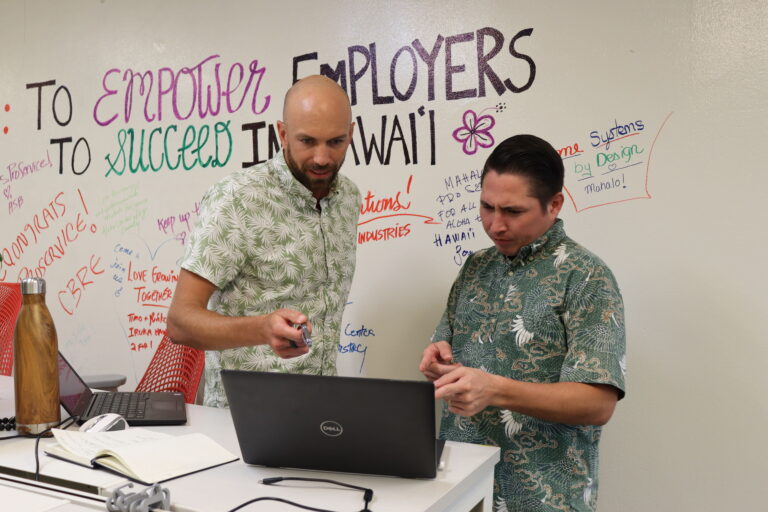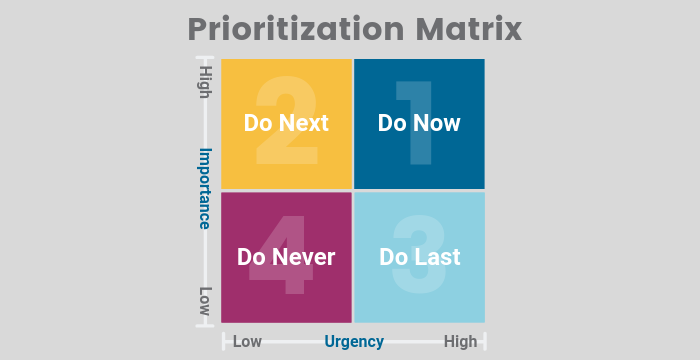How to Retain Hourly Workers (Hint: It’s Not All About the Money)
Explore the significance of competitive pay for job seekers and discover strategies for retaining hourly workers, even when increasing wages isn't feasible for your business.
The COVID-19 pandemic fundamentally altered the way we work. Paired with increasing economic pressures and inflation, American workers, specifically those in Hawaii, are looking for jobs that offer competitive pay. However, 50% of frontline workers say they're unhappy with their pay and benefits (compared to 64% of non-frontline workers), according to the Qualtrics 2024 Employee Experience Trends report.
Compensation is still the top concern for employees by a large margin. Still, other factors come into play when deciding to remain at a company or accept a new position. Read on to discover why offering competitive pay is important, how it can help increase your employees' earning potential, and why this matters for attracting and retaining talent.
Pay is the top concern for job seekers and employees.
Due to inflation and concerns about a coming recession, wage rates are a top priority for current and prospective employees. In fact, pay is the top reason 60-70% of people stay at a past job, and it's the most important factor they consider when looking for a new position.
Pay is even more important in Hawaii, given our high cost of living and the current economy. The Honolulu Consumer Price Index for Urban Consumers expects inflation in 2024 to be higher (2.8%) than the projected U.S. inflation rate (2.6%). Not to mention that the price of rice has jumped 40% in the last few years, and the overall cost of food and beverages went up by 4.2% compared to 2023. Plus, some families could see a significant increase in their monthly water bill due to the Honolulu Board of Water Supply recently upping the rates for Oahu residents by 64%, with some residents seeing upticks as much as 80%.
So, what does this mean for employers? Developing a strong compensation strategy and offering competitive wages is crucial for retention and recruitment. Yet despite how important employee pay is to workers, nearly half of all organizations surveyed (47%) by the Hawaii Employers Council do not have a compensation philosophy. Of those with one, only 18% have it written (34% say theirs is unwritten).
Documenting your strategy, sharing it widely across your company, and using it in the recruitment process can allow you to clearly outline how you provide best-in-class pay policies, benchmark compensation to ensure a fair rate, determine bonus amounts and payout schedules, and calculate raises.
But what if your business is unable to increase hourly wages?
While pay is a main motivator, money isn't everything. The Workforce Exit Study 2022 of Hawaii residents found that people who had never worked a job before are incentivized to apply for positions with better benefits (68%) and a flexible work arrangement (38%). Similarly, retired workers interested in returning to work named a flexible work arrangement (39%) and remote work (25%) as their main non-monetary drivers.
If you can't adjust your compensation strategy, you can make your company a more attractive choice for prospective and current employees by emphasizing how working there can help them increase their earning potential or have a flexible schedule.
Let's take a look at these options and explore some others.
1. Talk about job growth early and often.
A Pew Research Center study found that workers who feel they lack job security are among the most likely to say they may look for new employment. However, job security can mean more than the assurance of having a steady income and a stable position. For many, it's about seeing a path forward with the company and having ample opportunity for advancement within the company.
If you invest in your employees, they will invest in you. Provide career advancement and professional development opportunities right out of the gate. You, as the employer, have the opportunity to show how those added skills can help employees earn pay increases or promotions within your company.
This open communication starts from the beginning of the hiring process and should continue throughout an employee's journey. In a McKinsey survey, 77% of frontline employees said it is important that job descriptions refer to career advancement. Still, only 31% of employers surveyed provided advancement information in their job descriptions.
Consider adding language to your job descriptions that outline the base compensation, what kind of bonuses or compensation incentives employees can expect, how they are calculated and paid out, and any other training or professional development courses you offer.
Providing this kind of visibility into earning potential and advancement will help prospective employees see a path forward at your company and give them a feeling of job security.
2. Give employees an objective tied to pay to increase engagement and satisfaction.
Tying productivity, customer satisfaction survey results, or a commission structure to employee compensation can motivate employees—because they'll see the results of their hard work and the benefits of it reflected in their paychecks. This kind of structure could mean more employee buy-in and employees who are motivated to perform their jobs well, since their compensation depends on it.
3. Be flexible with shifts and scheduling..
After many companies offered remote work or schedule flexibility during the pandemic, employees increasingly desire a work schedule that fits their lives. But it may not be for work-life balance reasons alone; it could be from necessity, like accommodating child care or other caregiver obligations, or to take on extra gig work or second jobs.
The Voice of the American Workforce (VAW) 2023 report, which surveyed 29,000 hourly workers in 48 U.S. states, found that the number of people employed full-time and working more than one job rose by 1.2%, and nearly half of workers in manufacturing and logistics work more than 40 hours per week. Among logistics workers, 42.5% say they would be interested in gig work. Of those, a majority (66.5%) would take gig work to earn extra money.
Offering shorter work weeks (4-day/10-hr shifts), flexible hours, or hybrid or remote work wherever possible is a great way to show that you want your employees to have more control over their schedules so that they can make the necessary arrangements for their other obligations. Life happens—be an understanding employer that extends flexibility and trust.
4. Offer weekly paychecks.
If upping wages isn't possible, consider paying out employees weekly rather than bi-weekly or monthly. Especially in an uncertain economy, a weekly paycheck means a more regular source of money in employee pockets. It could make a significant difference for those living paycheck to paycheck or working extra hours to make ends meet.
Final thoughts
Extending these options to employees during economic hardship can be a differentiator for companies in the job market and bolster the confidence of current workers. Competitive compensation is important, but job security, schedule flexibility, and professional development opportunities matter to people, too. Consider how you can adjust your recruitment and retention strategies to keep these ideas in mind.









